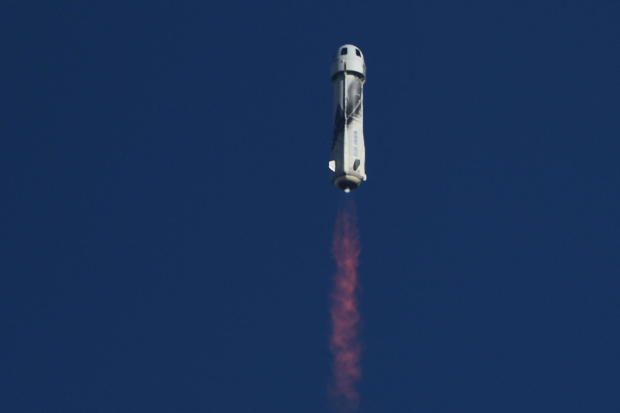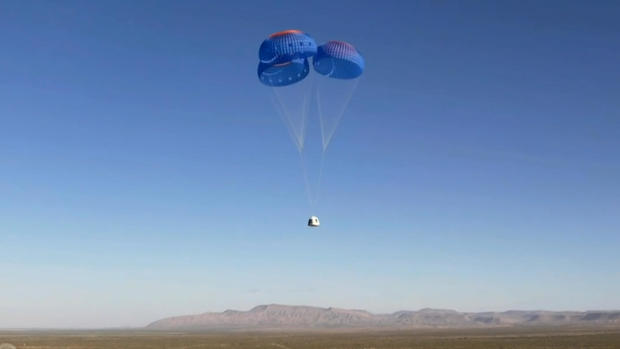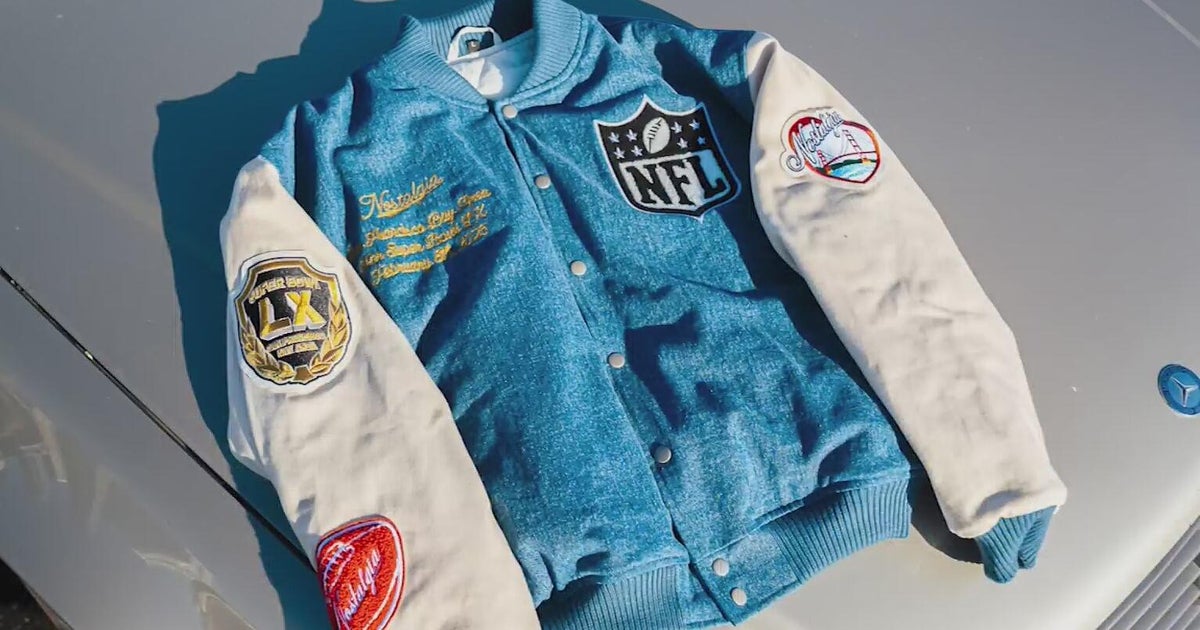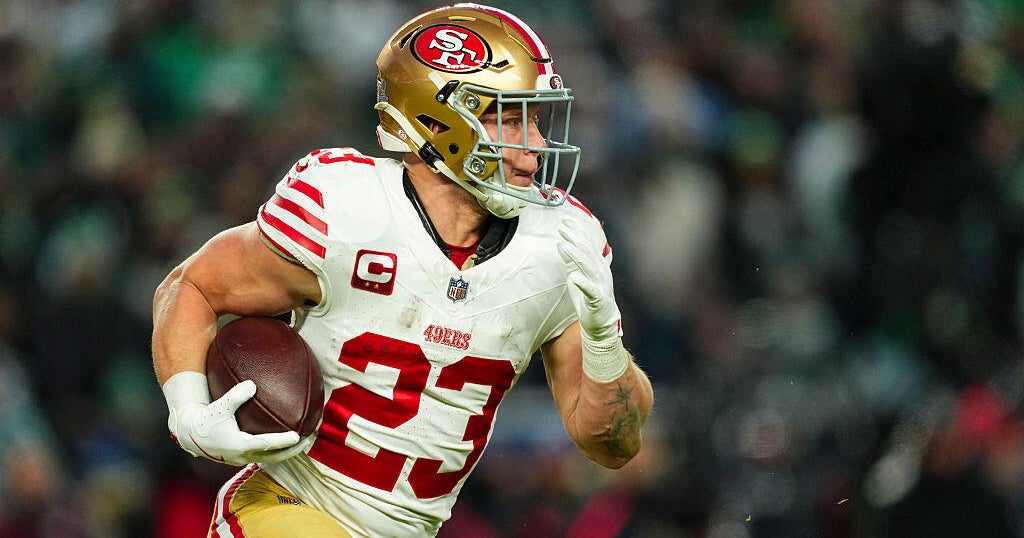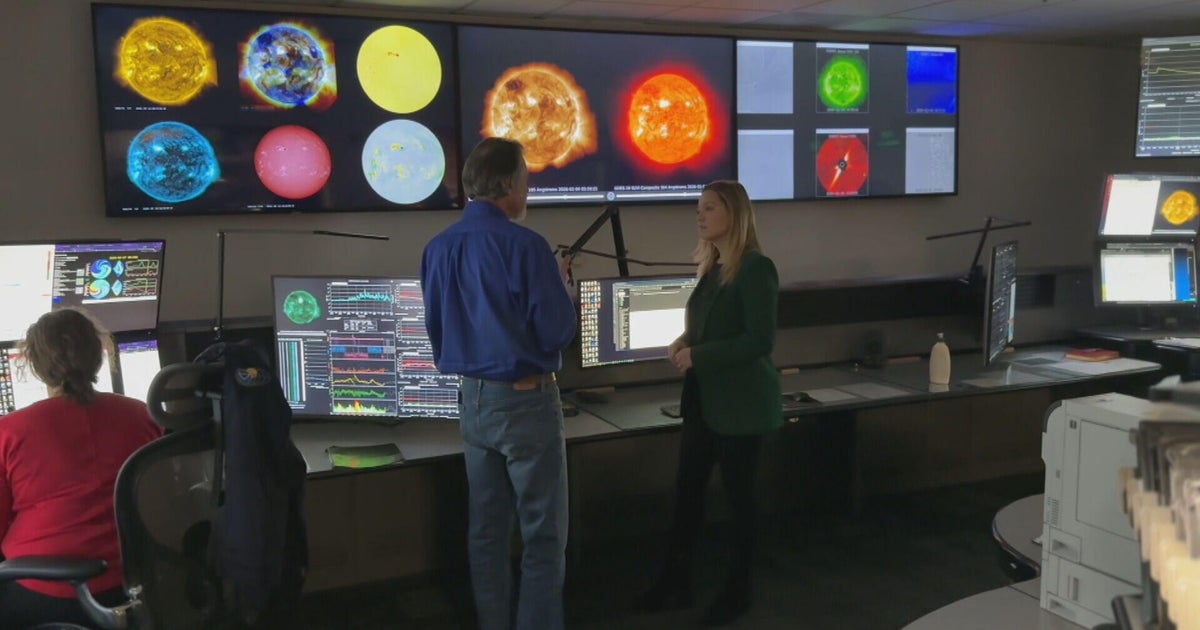William Shatner sets record in space with Blue Origin spaceflight
William Shatner, the 90-year-old veteran of countless imaginary space voyages playing Star Trek's Captain Kirk, blasted off for real Wednesday, becoming the oldest person to reach the final frontier in a PR bonanza for Jeff Bezos and his rocket company Blue Origin.
Over the course of 10 minutes and 17 seconds, Shatner and three crewmates took off atop a hydrogen-fueled rocket, climbed to edge of space 65.8 miles up and enjoyed three to four minutes of weightlessness, along with spectacular views of Earth, before plunging back to a gentle parachute-assisted touchdown.
Within minutes, Bezos and Blue Origin recovery crews were on the scene to open the spacecraft's hatch and welcome Shatner, Australian entrepreneur Chris Boshuizen, microbiologist Glen de Vries and Blue Origin executive Audrey Powers back to Earth.
Shatner cautiously made his way down a few short steps to the ground and was warmly embraced by Bezos. The actor grew emotional and was occasionally at a loss for words describing the flight to the man who made it possible.
"It was so moving to me," Shatner said. "This experience is something unbelievable."
He said he was overwhelmed, and that Bezos has given him the most profound experience he can imagine. "I'm so filled with emotion about what just happened ... it's extraordinary," he told Bezos.
"I hope I never recover from this. I hope that I can maintain what I feel now," he said. "I don't want to lose it."
Video released after the flight showed Shatner and his crewmates floating about the cabin as the spacecraft reached space, all of them focused on the view outside as they unstrapped and moved about without worrying about up and down. Shatner appeared mesmerized, quietly gazing out at the black of space and the brilliant planet 65 miles below.
"Holy cow," Powers marveled.
Speaking with reporters at the base of their booster after the flight, de Vries said flying with Captain Kirk was "the ultimate manifestation of science fiction becoming science. But we went to space with our friend Bill."
"Scared little Billy, frightened Bill," Shatner joked. "I'm so glad you said that. Captain Kirk is a fictional figure. I'm flesh and blood."
Said Boshuizen: "I can't think of a better ambassador for the future of humanity than his character James T. Kirk on Star Trek and that amazing future. So to fly with a true ambassador for what we can become on this planet, I think it's fantastic."
The flight marked only the second crewed launch of a New Shepard capsule since Bezos, his brother Mark, 82-year-old aviation pioneer Wally Funk and Dutch teenager Oliver Daemen took off July 20 on the company's first such flight.
Daemen, then 18, holds the record for youngest person to fly in space, but Shatner eclipsed Funk's record by eight years and John Glenn's mark before that by 13.
"I want to see space, I want to see the Earth, I want to see what we need to do to save Earth," Shatner told CBS Mornings' Gayle King before launch. "I want to have a perspective that hasn't been shown to me before. That's what I'm interested in seeing."
He got his wish.
Boshuizen and de Vries paid undisclosed sums for their seats aboard the New Shepard, but Shatner was an invited guest of Blue Origin. Powers, a former NASA flight controller now Blue Origin vice president of flight operations, flew as a company representative.
While the New Shepard rocket and capsule are only capable of up-and-down sub-orbital flights, Shatner and his crewmates endured the same liftoff accelerations space shuttle astronauts once felt — about three times the normal force of gravity — and even higher "G loads" during descent back into the lower atmosphere.
Even so, Shatner and his crewmates were considered passengers, not astronauts, aboard the automated New Shepard. But professional astronauts nonetheless welcomed them to the brotherhood of space travelers.
Especially Shatner.
"I'm impressed. I mean, he's 90 years old and showing that somebody at his age can actually fly to space," Matthias Maurer, a European Space Agency astronaut launching to the International Space Station at the end of the month, told CBS News.
"Even if it's, let's say, just a suborbital flight, I'm highly impressed, and I wish him all the best. Hopefully it will be the experience of a lifetime. And yeah, I hope many more people will follow his steps and also experience space."
Added Kayla Barron, a Navy submariner who's flying to the station with Maurer and two others aboard a SpaceX Crew Dragon capsule: "It's really awesome! Like who wouldn't want to see William Shatner fly in space? Like, I don't know anybody who wouldn't."
"For us watching these new companies with different missions, different equipment, different architectures for how they think about bringing more human beings into human spaceflight is just a win for all of us," she said. "So we're really excited to watch that flight, for sure."
Blue Origin's 18th New Shepard flight began a few minutes behind schedule when the BE-3 engine powering the company's 53-foot-tall booster ignited with a roar, throttled up to 110,000 pounds of thrust and lifted off from Launch Site One at the company's West Texas launch site near Van Horn.
Climbing straight up, the booster quickly accelerated as it consumed propellant and lost weight, reaching a velocity of about 2,200 mph and an altitude of some 170,000 feet before engine shutdown.
The New Shepard capsule then separated from the booster at an altitude of about 45 miles and both continued climbing upward on ballistic trajectories, rapidly slowing.
The onset of weightlessness began moments after separation. All four passengers were free to unstrap and float about as the capsule reached the top of its trajectory and arced over for the long fall back to Earth.
The New Shepard capsule is equipped with some of the largest windows in a currently flying spacecraft, giving Shatner, de Vries, Boshuizen and Powers hemispheric views of Earth far below.
"Yeah, you know, weightless, my stomach went up, ah, this is so weird, but not as weird as the covering of blue," said Shatner. "This is what I never expected."
"It's one thing to say, oh, the sky, and (it's) fragile, it's all true. But what ... is unknown until you do it, is there's this pure, soft blue. Look at the beauty of that color! And it's so thin, and you're through it in an instant."
Plunging back into the dense lower atmosphere, the passengers, back in their padded, reclining seats, were briefly subjected to more than five times the normal force of gravity before three large parachutes deployed and inflated, slowing the craft to about 15 mph.
An instant before touchdown, compressed-air thrusters were programmed to fire, slowing the ship to just 2 mph or so for landing.
A few minutes earlier, the New Shepard booster flew itself back to a pinpoint landing a few miles away, reigniting its BE-3 engine, deploying four landing legs and settling to a concrete landing pad. Assuming no problems are found, the rocket will be refurbished and prepared for another flight.
Competing approaches to sub-orbital spaceflight
The mission marked the sixth crewed commercial, non-government sub-orbital spaceflight in a high-stakes competition between Bezos' Blue Origin and Virgin Galactic, owned by fellow billionaire Richard Branson.
Virgin has launched four piloted flights of its winged spaceplane VSS Unity, most recently sending up Branson, two pilots and three company crewmates on July 11. At least one more flight is planned this year, with three researchers on board representing the Italian air force, before commercial passenger flights begin next year.
Blue Origin followed up the Bezos flight by launching a suite of NASA experiments on an unpiloted mission August 26. The flight Wednesday was the company's 18th overall and the second with passengers aboard.
Virgin Galactic is charging about $500,000 per seat. Blue Origin has not announced pricing for the New Shepard or how much Boshuizen and de Vries might have paid.
Shatner was flying as a guest of Blue Origin while Powers, a lawyer, a former NASA space station flight controller and Blue Origin's vice president for missions and flight operations, was flying as a company representative.
CBS News recently reported allegations of safety issues from current and former Blue Origin employees, most speaking anonymously, including complaints about a "toxic" corporate culture.
But Powers told King "that just hasn't been my experience at Blue."
"We're exceedingly thorough," she said. "I've worked on New Shepherd for eight years now in a variety of roles, and I can't say enough about the team of professionals that work on this program. ... Safety has always been our top priority. That has always been my experience here."
The competition between Blue Origin and Virgin Galactic showcases the emerging commercial space marketplace.
Branson won the commercial sub-orbital space race in 2018 when his company launched its first piloted test flight above 50 miles, the boundary of space recognized by NASA and the Federal Aviation Administration.
While Branson's July 11 sub-orbital hop was Virgin's fourth carrying pilots, it was the first with a full six-person crew and the first with the company owner on board.
Branson announced his flight after Bezos had already selected his July 20 launch date, upstaging the Amazon founder and grabbing headlines in the battle to sell a product — spaceflight — as a for-profit enterprise.
"I truly believe that space belongs to all of us," Branson said before his flight. "After more than 16 years of research, engineering and testing, Virgin Galactic stands at the vanguard of a new commercial space industry, which is set to open space to humankind and change the world for good."
He said he was "honored to help validate the journey our future astronauts will undertake and ensure we deliver the unique customer experience people expect from Virgin."
Virgin Galactic passengers enjoy a longer flight than Blue Origin's, about 90 minutes from carrier jet takeoff to spaceplane landing, but the time spent "in space" is roughly the same.
Shatner and his crewmates
Asked what she wanted to do most on the flight, Powers said in a Blue Origin video posted to Twitter, "I plan to spend the majority of the time looking out the window."
Shatner agreed, saying, "I plan to be looking out the window with my nose pressed against the (glass). The only thing I don't want to see is a little gremlin looking back at me!"
He was referring to a now-classic episode of "The Twilight Zone" titled "Nightmare at 20,000 feet" in which Shatner, playing the part of an airline passenger, sees a gremlin on the plane's wing. His frantic efforts to convince his wife and fellow passengers the gremlin is real instead convinces them he's suffered a breakdown.
James T. Kirk is Shatner's most famous role, and in the Blue Origin video, Powers was asked how excited she was to fly with the legendary starship captain.
"I don't know if I'm more excited to be going to space with Denny Crane or with Captain Kirk," she said, referring to Shatner's portrayal of a lawyer in the TV series "Boston Legal."
"But Denny Crane was on the verge of senility," Shatner joked.
"That's right!" Powers laughed. "We probably want the Captain Kirk version."
"I think you're better off with that guy," Shatner replied.
"Star Trek" debuted in 1966 when NASA was still launching two-man Gemini spacecraft. The series was canceled after three seasons, but devoted fans turned it into a phenomenon. NASA named its prototype space shuttle "Enterprise," spin-off series were launched and Shatner starred in seven of the 13 feature-length "Star Trek" movies released to date.
While filming the original "Star Trek" for television, Shatner said, it was just dawning on people that astronauts would soon be flying to the moon.
"I would go down to Cape Kennedy from time to time during the series and I met all the astronauts and I was very impressed," Shatner said on CNN. "When they went to the moon, I had reached (my) nadir, they were at the apogee. I was divorced, the show was canceled and I'm looking up there ... and I'm lying in a cab trying to get some sleep because I have to perform the next day and I can't afford a hotel room.
"So 55 years later, I wrote a song for this album that's out there now called 'Bill,' and one of the songs is 'So Far From the Moon." It was all about that moment when I was looking at the sky, being so far from the moon, and here I am all this time later being a few thousand feet closer to the moon than you are."
As might be expected, Shatner is the "star" of New Shepard flight 18, and that's presumably just fine with crewmates Boshuizen and de Vries. Despite their professional and financial success, neither man has an entry in Wikipedia and both seem content to keep personal details personal.
Boshuizen, 44, is an Australian who holds a Ph.D. in physics from the University of Sydney. After a stint at NASA's Ames Research Center in California, he co-founded Planet Labs, a company that pioneered the use of small "nanosats" and now operates the largest fleet of commercial Earth-observation satellites.
He also is a partner at DCVC, a "deep tech" investment company in San Francisco, and is a musician in his spare time, performing under the name Dr. Chrispy.
"I'm very excited," he told King on "CBS Mornings." "I've waited my entire life to do this. I think it's pretty amazing that 2021 is the year that really the human race is finally starting to go to space at scale.
"I think we'll look back at this date 50 years from now and go, wow, this really was a special time in history, just like the Wright brothers, when people started flying passenger planes. It's really exciting to be part of history and I can't wait to fly."
de Vries, a private pilot in his spare time, was trained as a molecular biologist and co-founded Medidata Solutions, the most-used clinical research platform in the world. The company's software has managed more than 25,000 clinical trials involving more than seven million patients. Dassault Systèmes acquired the company in 1999 for $5.8 billion.
"I am actually looking forward to seeing the Earth from a different perspective than I ever had before," he said in the "CBS Mornings" crew interview. "I just can't wait to stare out that window and feel differently about humanity and our planet than I've ever had the opportunity to before."
